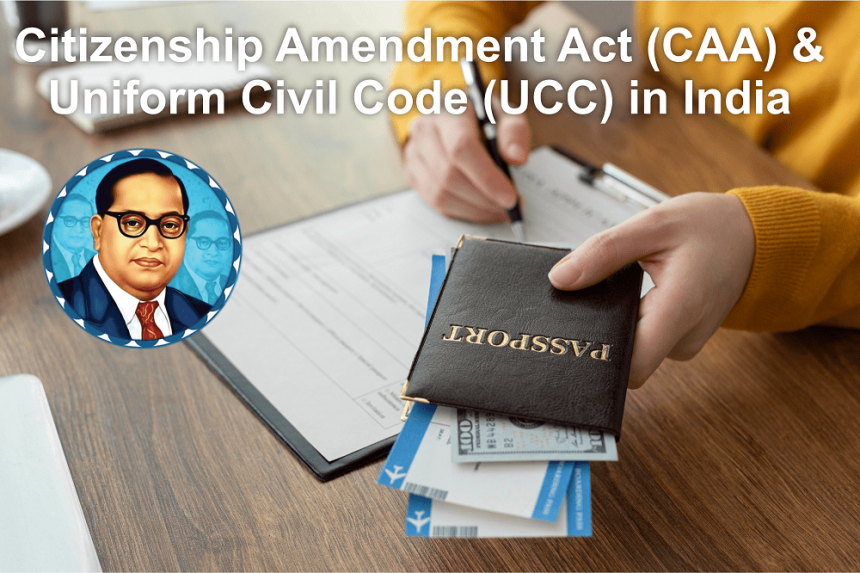The Citizenship Amendment Act (CAA) and the Uniform Civil Code (UCC) in India are subjects of considerable debate, and opinions on their benefits or drawbacks can vary. Here’s a general overview:
Citizenship Amendment Act (CAA): The CAA aims to provide a path to Indian citizenship for members of certain religious minorities (Hindus, Sikhs, Buddhists, Jains, Parsis, and Christians) who faced religious persecution in Afghanistan, Bangladesh, and Pakistan before December 2014. Proponents argue that it addresses the concerns of persecuted minorities and fulfills India’s commitment to protect refugees. They believe it is a humanitarian gesture.
Critics, however, raise several concerns:
- Exclusivity: The CAA has been criticized for excluding certain groups, such as Muslims, and is perceived by some as discriminatory.
- Secularism: Critics argue that it violates the secular principles of the Indian Constitution by making religion a basis for citizenship.
Uniform Civil Code (UCC): The UCC is a proposal to replace personal laws based on religious scriptures and customs with a common set of laws governing matters like marriage, divorce, and inheritance for all citizens, irrespective of their religion. Proponents argue the following benefits:
- Gender Equality: A UCC is seen as a step towards achieving gender equality, as personal laws often have different provisions for men and women.
- Secularism: Implementing a UCC aligns with the secular principles enshrined in the Indian Constitution, treating all citizens equally irrespective of their religion.
- Legal Uniformity: It brings uniformity in laws related to personal matters, creating a cohesive legal framework.
Critics express concerns:
- Cultural Sensitivity: Opponents argue that personal laws are deeply tied to cultural and religious practices, and imposing a uniform code might infringe upon individual and community rights.
- Social Harmony: Some argue that imposing a UCC might disrupt social harmony and lead to resistance from communities that wish to preserve their distinct personal laws.
It’s essential to note that the perspectives on the benefits and drawbacks of CAA and UCC are diverse, and the above points represent general arguments made by proponents and critics. Public discourse, legal considerations, and government policies can influence the ongoing discussions surrounding these issues.










ukoq64